Your garden’s success starts from the ground up—literally. If you’re tired of lackluster results or wondering how to nurture healthier, more vibrant plants, organic garden soil might be the game changer you need. Packed with nutrients, beneficial microbes, and moisture-retaining properties, organic soil creates the perfect foundation for thriving greenery. Let’s dive into the seven amazing benefits of organic garden soil and how it can revolutionize your gardening journey.
Table of Contents
What is Organic Garden Soil?
Definition and Composition
Organic soil for garden is more than just dirt; it’s a thriving ecosystem. Made from compost, natural fertilizers, and organic matter, this soil is free from synthetic chemicals. Unlike regular soil, organic soil is rich in nutrients and microbes that encourage plant growth and improve soil health.
By using organic garden soil, you’re not only fostering a better environment for your plants but also supporting a healthier ecosystem as a whole.
Key Components of Organic Garden Soil
Organic garden soil contains specific elements that set it apart:
- Compost: Decomposed plant matter adds essential nutrients.
- Natural Fertilizers: Bone meal, blood meal, or rock phosphate can enrich the soil naturally.
- Microbial Life: Healthy bacteria and fungi improve nutrient absorption for plants.
- Organic Matter: Materials like leaf mulch and decomposed wood provide long-lasting structure.
Why Choose Organic Garden Soil?
Using organic garden soil goes beyond growing plants—it’s about cultivating sustainability. It reduces the need for synthetic fertilizers and pesticides, promotes biodiversity, and helps retain moisture for water conservation. Whether you’re working with organic container soil for potted plants or organic garden soil in bulk for larger spaces, the benefits are undeniable.
Environmental Benefits of Organic Soil
- Minimizes the environmental impact of chemical runoff into water systems.
- Supports pollinators like bees and butterflies by maintaining a toxin-free environment.
- Encourages soil regeneration, helping combat soil degradation globally.
7 Amazing Benefits of Organic Garden Soil
1. Improves Soil Structure
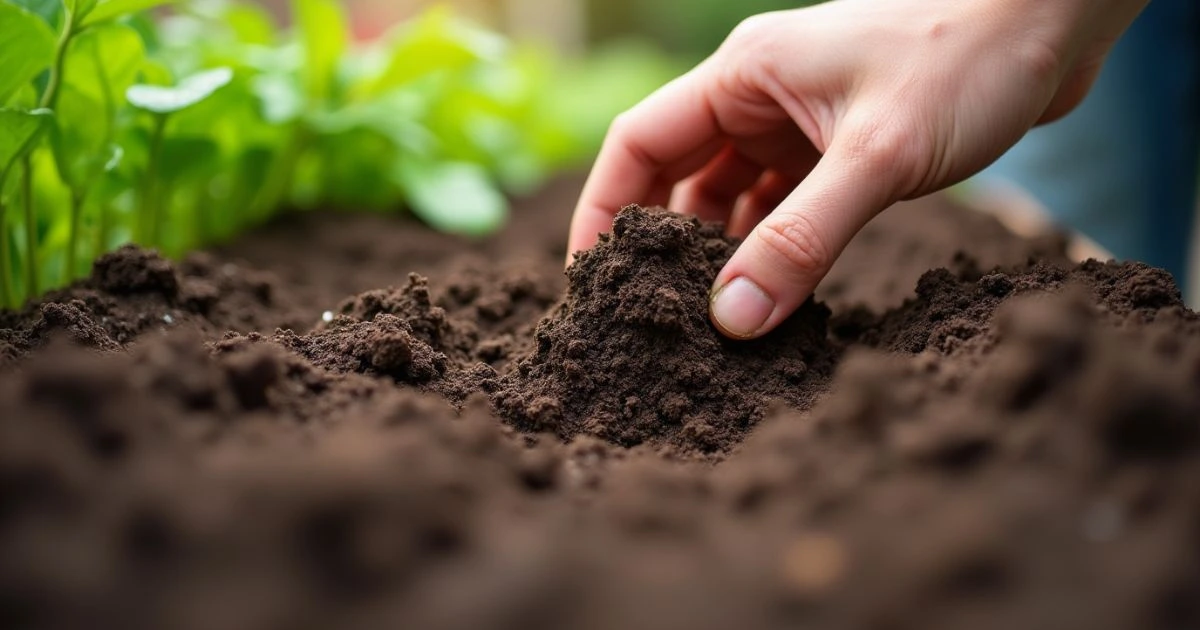
Organic soil has a looser, crumbly texture that allows roots to grow deep and spread out. This structure improves drainage while retaining enough moisture for plants to thrive.
- Prevents compaction, which can suffocate roots.
- Encourages better aeration, leading to healthier root systems.
- Example: In clay-heavy soils, adding organic garden soil can transform a dense, waterlogged area into a productive vegetable bed.
2. Enhances Nutrient Retention
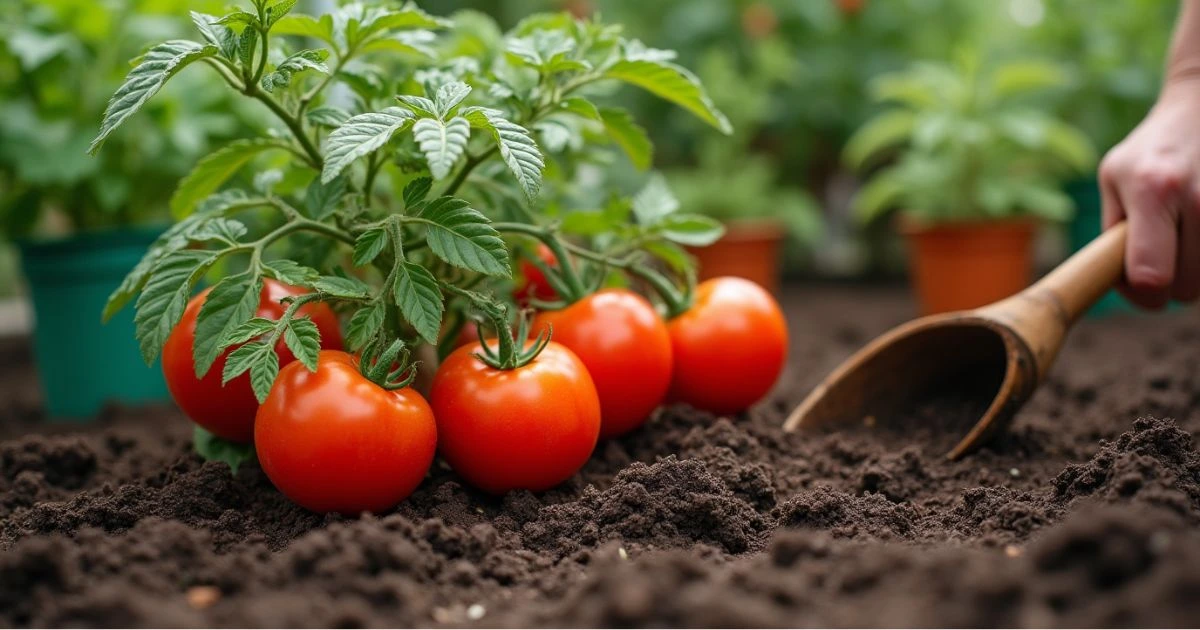
Nutrient retention is where organic soil truly shines. Its rich organic matter binds nutrients, ensuring they’re available for plants over time.
- Eliminates the need for constant fertilization.
- Works well with organic container soil, keeping potted plants nourished.
- Example: A tomato plant in organic gardening soil will produce juicier, more flavorful fruits due to consistent nutrient availability.
3. Encourages Beneficial Microbes
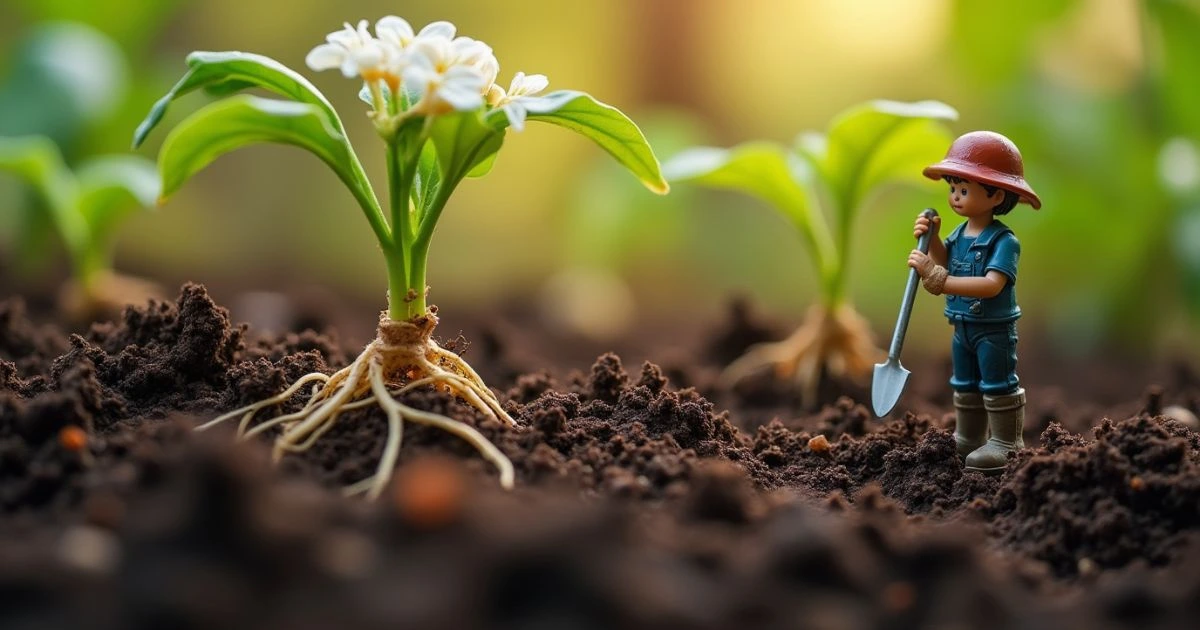
Healthy soil teems with life, and organic garden soil is no exception. It’s a haven for beneficial microbes that break down organic matter and release nutrients.
- Supports natural nutrient cycling.
- Boosts the soil’s ability to suppress harmful pathogens.
- Example: Mycorrhizal fungi in organic soil form symbiotic relationships with plant roots, extending their reach for water and nutrients.
4. Supports Plant Disease Resistance
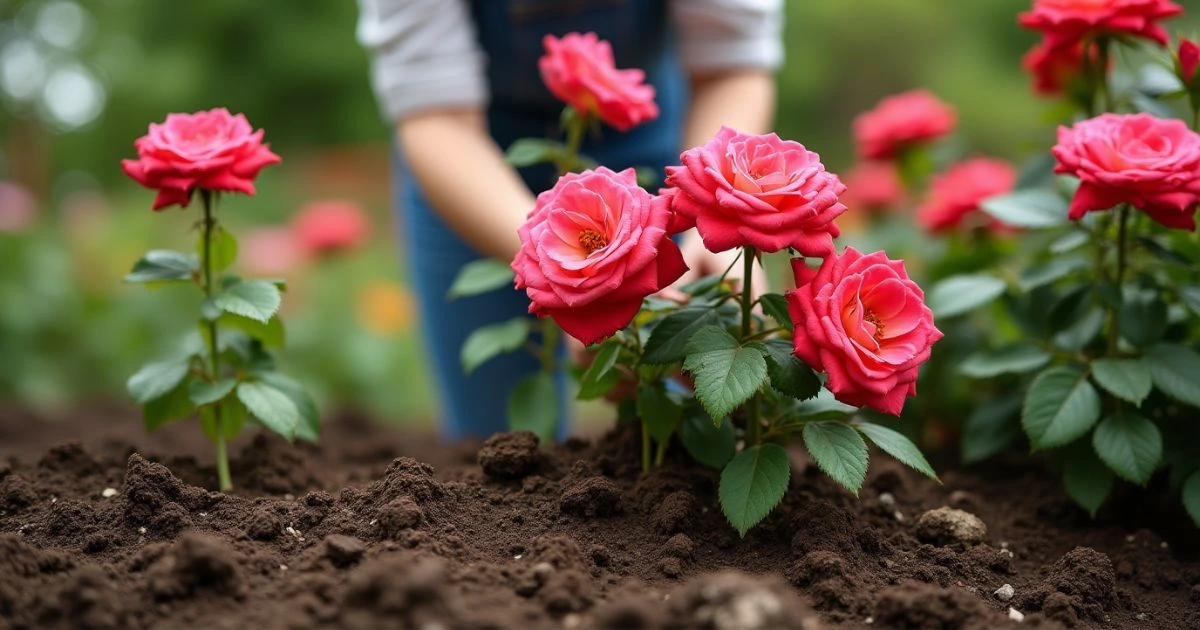
With fewer synthetic additives, organic soil strengthens your plants’ natural defenses. It creates a balanced environment where beneficial microbes outcompete harmful ones.
- Reduces the likelihood of diseases like root rot.
- Works well even with potting soil with no fertilizer.
- Example: Roses grown in organic soil are less susceptible to black spot disease due to the soil’s natural antifungal properties.
5. Improves Water Management
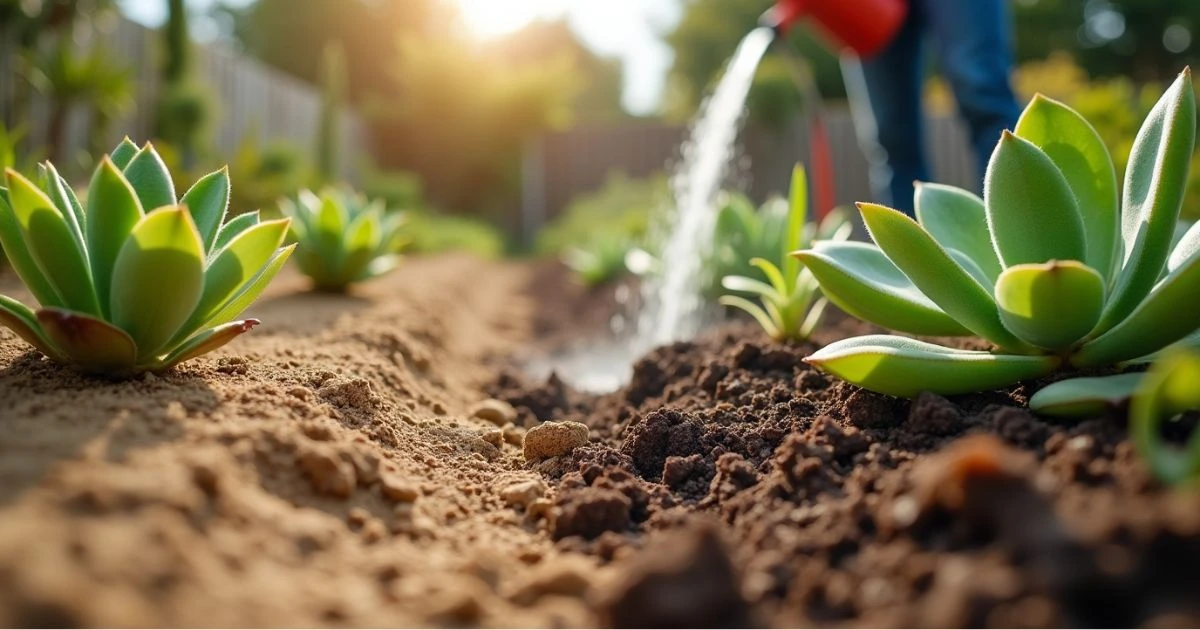
Organic matter in the soil functions like a sponge, soaking up and holding water for plants. This is particularly beneficial in arid areas or during water shortages.
- Cuts down on watering needs.
- Prevents water runoff, protecting nearby plants and soil.
- Example: In sandy soils, organic garden soil helps retain moisture, allowing drought-tolerant plants like succulents to thrive.
6. Encourages Root Development
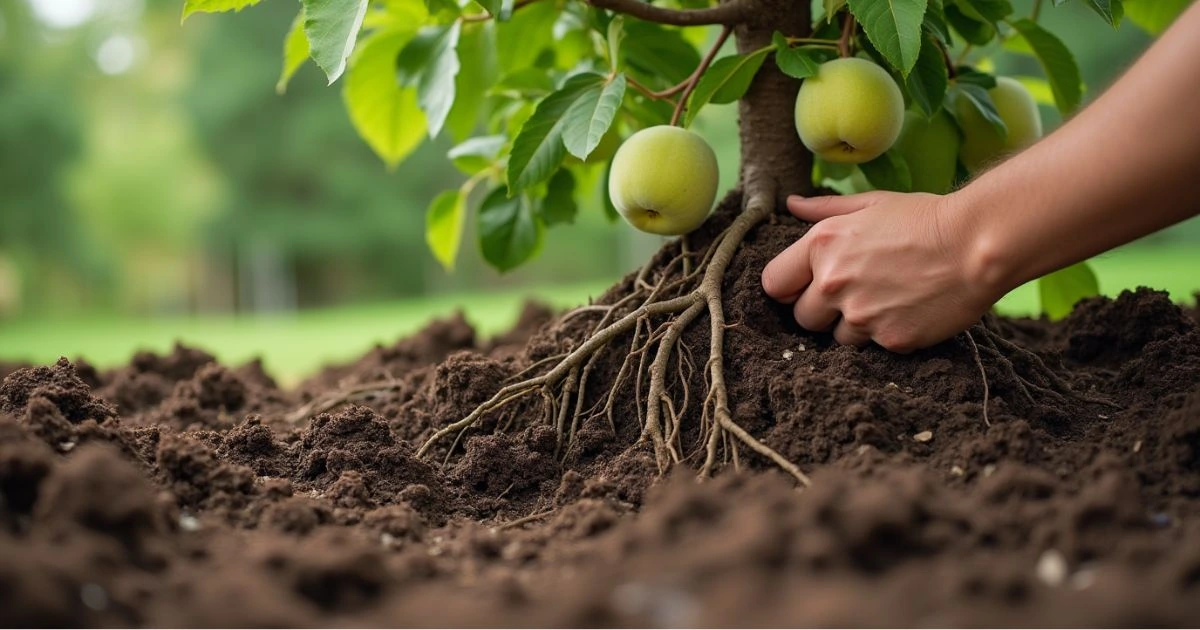
The loose texture of organic gardening soil ensures roots have the freedom to grow. Healthier, more resilient plants grow from stronger roots.
- Provides better anchorage for larger plants.
- Improves nutrient uptake, resulting in lush growth.
- Example: Fruit trees planted in organic garden soil establish faster and yield more robust harvests due to enhanced root health.
7. Promotes Sustainability
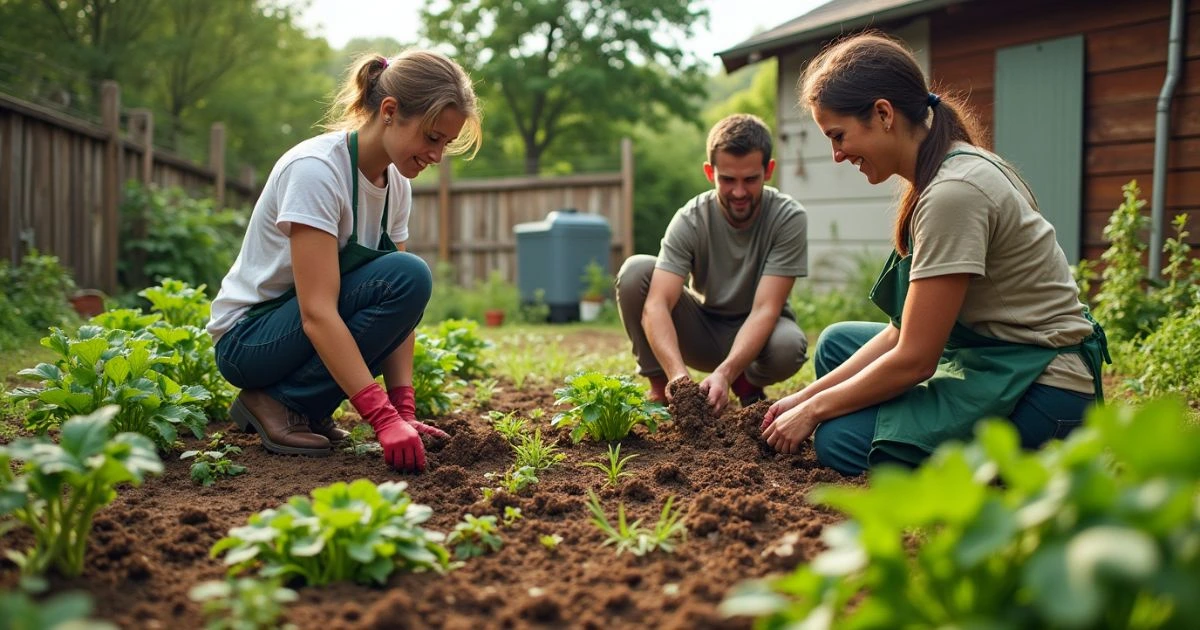
By choosing organic soil, you’re reducing reliance on non-renewable resources and harmful chemicals. Whether you’re buying organic garden soil in bulk or mixing your own, it’s a step toward an eco-friendlier garden.
- Reduces carbon footprint by minimizing synthetic inputs.
- Encourages the use of compostable materials.
- Example: Community gardens that rely on organic gardening soil create a shared resource for sustainable food production.
How to Create Organic Garden Soil at Home
Step-by-Step Recipe
Making organic garden soil is simpler than you might expect. Here’s an easy recipe to begin with:
Ingredients (Use this table for clarity):
| Ingredient | Quantity | Purpose |
| Compost | 50% | Adds organic matter |
| Garden soil | 30% | Base material |
| Coco coir or peat moss | 10% | Retains moisture |
| Perlite or sand | 10% | Improves aeration and drainage |
| Bone meal (optional) | Small amount | Supplies phosphorus |
Instructions:
- Mix compost, garden soil, coco coir, and perlite in a large container or wheelbarrow.
- Mix thoroughly to ensure even distribution.
- Let the mixture rest for 1–2 weeks to allow microbial activity to settle.
- Use this mix for raised beds, containers, or as a top layer in your garden.
Tips for Using Organic Garden Soil Effectively
For Different Plant Types
- Vegetables: Add more compost to enrich the soil.
- Flowers: Include bone meal to encourage blooming.
- Herbs: Use well-drained organic container soil.
Seasonal Soil Care
- Refresh the soil with compost at the start of each season.
- Mulch with organic materials like straw or wood chips to protect the soil surface.
Common Mistakes to Avoid with Organic Soil
Overwatering
Even with improved drainage, overwatering can harm plants. Learn to balance watering needs depending on plant type.
Skipping Soil Testing
Test your organic garden soil periodically to ensure it has the right pH and nutrient levels.
Frequently Asked Questions (FAQ)
What’s the difference between organic garden soil and regular soil?
Organic soil is enriched with compost and natural fertilizers, while regular soil often lacks nutrients and beneficial microbes.
Can I use organic garden soil for potted plants?
Yes! Use organic container soil for potted plants. Ensure good drainage by mixing with perlite.
Does organic soil eliminate the need for fertilizers?
Organic soil reduces the need for synthetic fertilizers by naturally retaining and recycling nutrients.
Is organic garden soil bulk better for larger gardens?
Absolutely! Buying in bulk is cost-effective and ensures you have enough for extensive gardening projects.
Conclusion
Organic gardening soil isn’t just soil—it’s the heartbeat of your garden. It’s the foundation that supports not only your plants but the entire ecosystem you’re cultivating in your backyard. Whether you’re growing vegetables, flowers, herbs, or even fruit trees, organic soil provides a rich, nutrient-packed environment that leads to healthier plants, increased yields, and long-lasting garden success. What you’re truly fostering is a thriving ecosystem that works in harmony with nature, supporting everything from beneficial microorganisms to pollinators.
Imagine the transformation: vibrant blooms, abundant harvests, and lush greenery that radiate with health and vitality. Your garden becomes a testament to your care and dedication, a place of beauty and bounty. With organic soil, you’re not just nurturing plants—you’re contributing to a more sustainable and environmentally friendly world. Every time you choose organic, you’re making a choice that’s better for the earth, reducing your reliance on harmful chemicals, and encouraging biodiversity.
The true beauty of organic gardening lies in its ability to work with the environment, not against it. As you watch your garden flourish, you’ll notice the difference: stronger, more resilient plants, improved soil health, and fewer pest problems. By fostering a thriving ecosystem beneath the surface, you create a garden that practically takes care of itself, reducing the need for constant intervention. Your garden becomes self-sustaining, and the work you put in is returned to you tenfold in the form of healthy, beautiful plants.
So, why wait any longer? Start small, with a few containers on your porch or a small raised bed in your backyard, and gradually work your way up. If you’re feeling ambitious, go ahead and purchase organic soil in bulk and transform your entire garden into a lush paradise. Organic soil works wonders in all kinds of spaces—from small balconies to expansive gardens—and no matter the size of your gardening project, it’s the key to long-term success.
The time to act is now. Don’t miss out on the opportunity to grow your own fresh produce, create a stunning flower bed, or simply cultivate a healthier, more eco-friendly outdoor space. By choosing organic soil, you’re not just investing in your plants—you’re investing in your future and the future of the planet.
So, put on your gloves, grab your tools, and get started. Experience the joy and satisfaction that comes from growing your own food, creating a beautiful garden, and knowing that you’re doing your part to support a greener, more sustainable world. With organic soil, you’re giving your garden the best possible foundation to thrive—and in return, your garden will reward you with its bounty.
For more expert advice, tips, and inspiration on how to maximize your gardening potential with organic soil, visit Garden Sculptor. Together, let’s build a healthier, more vibrant, and more sustainable future—one garden at a time.


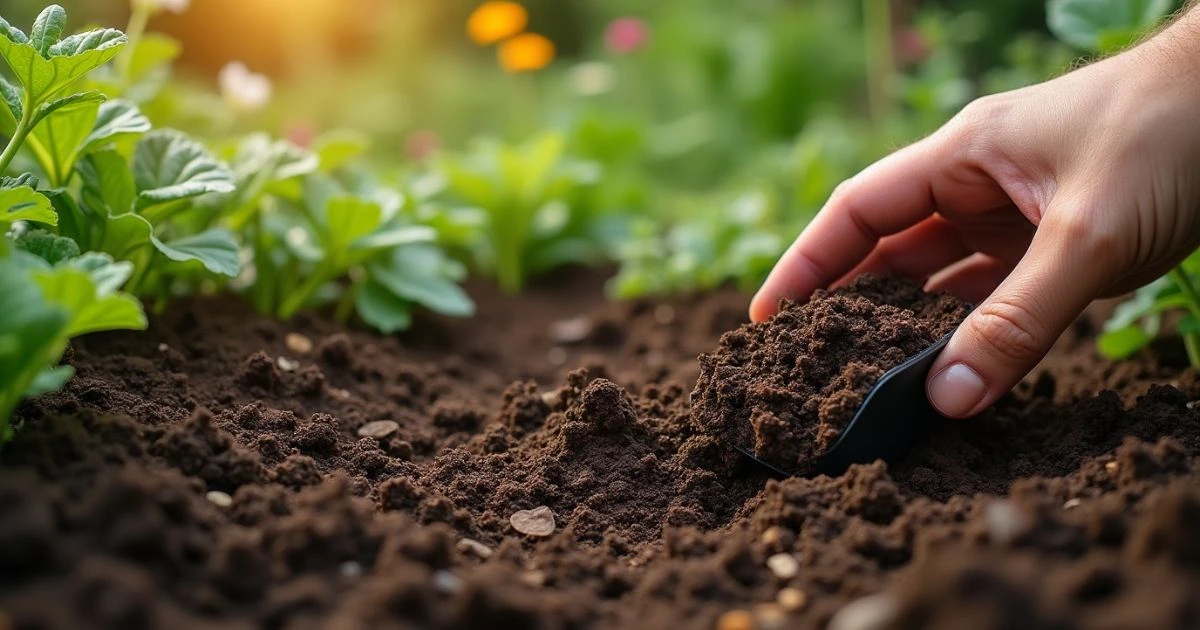
5 thoughts on “Organic Garden Soil: 7 Amazing Benefits for Thriving Plants”